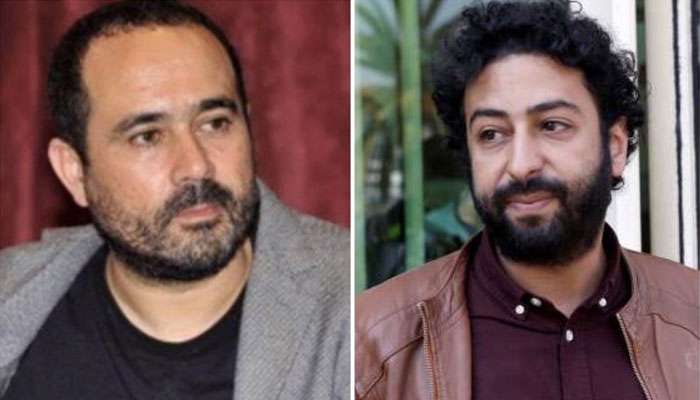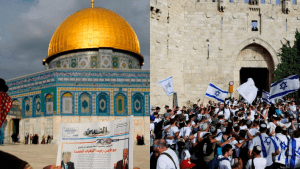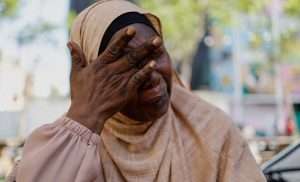Moroccan Journalists’ Appeal Denied, Radi Father’s Call

The cases against Moroccan journalists who have written about corruption and found themselves soon in jail is costing Morocco billions of dollars in lost foreign investment, not to mention damaging its reputation around the world.
Morocco’s top court has rejected the final appeals of two journalists, Omar Radi and Soulaimane Raissouni, imprisoned on a number of charges – including sexual assault – which they deny, their lawyer said on July 19th.
The court of cessation in Rabat on July 18th “rejected our appeal and confirmed the prison sentences” of the two men who have been behind bars since 2021, lawyer Miloud Kandil told AFP.
Radi, 37, was handed a six-year prison term and Raissouni, 51, a five-year sentence in trials that defence lawyers labelled “flawed”.
Their cases continue to stir harsh deprecation from international rights groups around the world who believe, like many Moroccans, that their arrests and imprisonment are based on the journalists’ critique of the government and that their cases are fabricated.
Their cases are seized upon by international news agencies, backed by Arab countries who have an axe to grind against Morocco and hinder foreign investment in the country – and yet Rabat refuses to see the self harm it is causing by an over zealous security chief’s actions.
International human rights groups’ condemnation is being given greater coverage than what the cases warrant.
One, the respected US-based Committee to Protect Journalists, even went as far as stating that the journalists’ imprisonment was based on a policy of petulance by the state anxious to stamp out independent journalism emerging from the Moroccan press, largely a champion of self censorship which only publishes stories to appease the government.
Police state only obsessed with “security”
“We are deeply disappointed by the court’s decision to keep Soulaiman Raissouni and Omar Radi behind bars by rejecting their final appeals,” said CPJ Middle East and North Africa Program Coordinator Sherif Mansour. “Morocco lost an opportunity to reverse course on its retaliatory measures against independent journalists, whose voices the country so desperately needs.”
Human Rights Watch went further. It has accused Morocco of using criminal trials, especially for alleged sexual offences, as “techniques of repression” to silence journalists and government critics.
Authorities in the North African kingdom say the journalists were tried for common law crimes which “have nothing to do” with their profession or free speech.
Radi’s father told Maghrebi that he was “encouraged” by the American journalism watchdog.
“Currently, Morocco faces an exceptional political situation with paralyzed institutions under the influence of the political police” he explains. “We urge the king Mohammed VI to intervene and address this concerning state of affairs, especially in light of the recent decision by the European Parliament on media freedom” he adds.
“The uncertain state of Morocco’s politics not only affects foreign investment but also poses a threat to the nation’s interests” explained Driss Radi to Maghrebi. “The current approach, focused solely on security, has proven ineffective. If this continues, Morocco’s future may be compromised. However, urgent action is needed to address the present challenges and secure a better future for the country”.
Journalists who write about corruption
The watchdog group Reporters Without Borders (RSF) ranks Morocco 144th out of 180 countries in its latest World Press Freedom Index, down nine positions from 2022.
Khaled Drareni, RSF’s North Africa representative, said of the latest court ruling that “the signal sent is a disastrous one”.
Feminist lawyer Aicha Guella, president of victims’ rights group AMVD, welcomed the ruling however and charged that Radi and Raissouni and their supporters were “trying to politicise these cases when the facts have been established in court”.
Radi, an investigative journalist who has written about official corruption, was arrested and charged in July 2020.
He was prosecuted for “undermining the internal security of the state” and accepting foreign financing and, in a separate case, for the “rape” of a former colleague who rejected his claim that they had consensual relations.
In reality, according to investigations by Maghrebi, Omar Radi was really arrested as his freelance researching work for a London-based security company panicked the elite and security services in Rabat, especially when a former UK diplomat was on the team directing him.
Raissouni, an editorialist who has been critical of the authorities, was also prosecuted on “sexual assault” charges brought by a young LGBTQ activist, which he has denied.
He was arrested in May 2020 but did not attend most of his initial trial between February and July 2021 because he was on a 122-day hunger strike, according to the London-based New Arab, which is financed by Qatar.
The court also upheld the conviction and one-year jail term of another journalist, Imad Stitou, who had been a defence witness in Radi’s trial but was then himself charged for “failure to assist a person in danger”.
Stitou, who had backed Radi’s testimony in court, left Morocco and was tried in absentia.
Additional reporting by Majda Elajmi
Want to chase the pulse of North Africa?
Subscribe to receive our FREE weekly PDF magazine














